Choosing a school for your son is one of those major decisions you will make as a parent. Researching and weighing up options, putting his name on a waiting list, attending admissions interviews and finally making a selection can feel like a long and drawn out process.
At the interview stage, or even when making enrolment enquiries with a school, quite often the focus is on what you need to be doing and the next steps in ‘the process’.
Of course we’re not saying the enrolment process isn’t important – it is. But over and above this there are still the big picture questions – ‘Is this the right school for my child’ and ‘Is my child right for this school?’ It is a two-way process and if there isn’t a match, you should feel comfortable to make the call and look elsewhere.
Here’s what you need to know when choosing a school for your son.
Discerning parents should ask specific questions of any prospective school in an attempt to understand the following components.
Values
“Is there a match between the values at home and the values held by the school?”
When there is, the student will feel comfortable and operate in an environment that they relate to. As a result, outcomes are likely to be positive. It is important that you agree with the values that the school instils in your son.
Curriculum and programs
“Is there suitable breadth in the programs offered to support the varied needs of all students?”
At a young age, it is very difficult to know what direction a child will take. Enrolling at a school with breadth and depth of programs will foster the opportunity for students to pursue a pathway suitable for their needs.
If your son has a specific ability or interest, it is important that this can be nurtured and developed at school. Equally, if your son experiences difficulties with learning or needs to be challenged, then it is vital to ask how the school supports students on their individual learning pathways through learning enrichment or honours programs.
You should also explore the extracurricular options that the school offers. For example, if your son is interested in music, can he explore this passion outside of the classroom with dedicated and talented tutors?
Leadership
“What is the School Principal like? What does he value? What is his leadership style?”
Regardless of whether you choose private or public education, how the school is run will ultimately determine the quality of education your son receives. A strong leadership model filters through to every aspect of school life. If possible, try and meet with the School Principal to discuss his approach to leadership and education.
Pastoral care
“Will my child be supported pastorally during his schooling?”
There are many different models of pastoral support and management. Parents should be comfortable knowing they have a contact at the school who is a strong advocate for their child. Schools with an effective pastoral model are likely to elicit better outcomes from their students.
Ask about the pastoral care program at the school and how they deal with issues that students might encounter during their time at school, such as bullying.
Comparison of schools
“What does this school offer compared to a school in my immediate locality?”
Schools are not usually willing to talk about the differences between themselves and other institutions, however, they are willing to discuss what they value. Ask yourself if the school’s values is what you are seeking, and compare to other schools’ offerings.
Educational philosophy
“What does the school consider education to be?”
Is the school looking to provide a broad education that takes values and character development of the whole child into consideration, or is schooling limited to a mark on graduation? Is this consistent with your expectations? Some schools place great emphasis on academics, while others focus on creative expression. Other schools focus on graduating well-rounded students. Decide what is important for you and your son, and ensure the school’s philosophy matches yours.
Logistics
“Can my child reliably access the school for the duration of his schooling?”
Travel times and access can greatly shape a student’s day. Learn about the location and campus layout of the school to ensure that it works for your son and your family. How far are you happy for your son to travel each day? Is the school close to your home or work? Are there transport options available for your son to get to and from school each day?
Catchment areas
“What are the catchment areas for the school?”
Student friendships and sporting teams are often based around classmates. Having other students from the same catchment area in his class is likely to encourage the development of an active, local peer network.
Teacher-student relationships
“Do the teachers take great pride in educating and raising young men?”
The connection between your son and teacher is more important than any curriculum. Look for teaches who are highly engaged. Have a conversation with a prospective teacher and ask about their class. You want teachers who take great pride in their students’ progress and are consistently open to innovation and improvement. Your son should be in the care of a teacher for whom every day is a new day – a teacher who is constantly ready for the energy boys bring to the classroom and knows how to encourage their learning.
Excellent teachers can also accelerate the rate of learning among their students. And good schools champion great teachers. They grow them. Look for schools that provide teachers with mentors, professional development and discussion of best practices.
Family connections
“Does your family have a connection to the school?”
If you have older children already attending school, will your child benefit from going to the same school as their siblings? The admissions process can sometimes be streamlined for siblings and you already have a relationship with teachers at the school. Sending siblings to the same school is often the path of least resistance. But sometimes one child has different needs to another so other schools may need to be explored.
You may also have a connection to the school through parents, such as a father or grandfather who attended the school. Some families place great importance on the tradition of attending the same school, while others are open to change.
Opportunities
“What opportunities will my son have outside of school?”
Some schools offer fantastic learning and sporting opportunities outside of the regular school program. Opportunities such as international exchanges, summer schools and sport tours all give your son a chance to pursue his interests and learn more about himself and the type of man he wants to be.
Cost
“How much will it cost to send my son to this school for his entire school career?”
Cost can be a tricky subject for a lot of parents. We have covered the topic of school fees before and have found that it really comes down to the value the school offers you, rather than the fees they charge. There are some fantastic low-fee schools that provide parents and students with a high level of value.
The Scots College’s comprehensive guide to choosing the right school for your son provides an in-depth look at the selection and enrolment process that parents will go through when choosing a school. It offers tips on researching schools, what to look for and a survival guide for enrolling. Download your copy now to gain a new level of insight into choosing a school.






